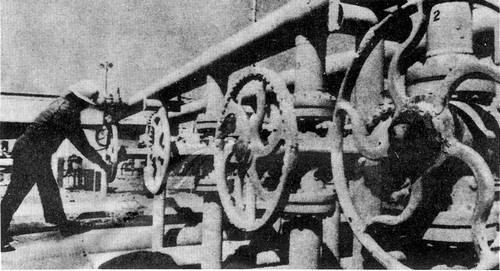
WORLD EVENTS
NON-ALIGNED NATIONS MEET IN HAVANA
Members of the non-aligned movement have assembled in Havana, Cuba, to attend the sixth summit conference of the 18 year-old movement. The summit, pursuing its goals as defined by the non-aligned charter of building a new system of international relations free of exploitation, oppression and foreign domination, is expected to discuss Egypt's deviation from non-aligned principles and its betrayal of the legitimate rights of the Palestinian people. Moreover, member nations will discuss stepped-up measures against Israel, including a total boycott directed by the UN. The 89 member nations of the movement are also expected to take measures to confront the deteriorating situation in Southern Africa and the continuing support by imperialist states for the racist and illegal minority regimes of the region. Chairman Yasser Arafat is attending the conference at the head of a Palestinian delegation. He will present the Palestinian point of view about the latest political developments on both the Palestinian and Arab levels.
NICARAGUA RECONSTRUCTS UNDER REVOLUTIONARY GOVERNMENT

Nicaragua: The strugge for food
|
Among the important measures taken are laws on nationalisation of the entire property of the Somoza clan and the private banks, and decrees on partial state ownership of foreign trade enterprises and on implementation of the agrarian reform. One of the most important results of the revolutionary process was the speedy reorganisation of the administration. "Even in the most remote villages Sandinist defence committees were set up which decisively influence democratisation of the country by including the popular forces in local and national decision-making, "the 37-year-old Dr. Ramirez, a lawyer and author, stressed.
Democratically elected local people's representations have been set up in over 80 per cent of the 137 Nicaraguan towns and communities. Over the next few months priority tasks must be solved in the health system, national education, housing, agricultural production and in the food sector. To do so the government has started to build up a uniform health system and to prepare a literacy campaign for which the whole people is to be activated. Special importance is attributed to the speedy revival of agricultural production, mainly the cultivation of staple foods such as maize, beans and rice. The complicated situation in food supply until the next harvest can only be solved with the help of international solidarity and support, he said.
"In foreign policy we are seeking relations with all nations in the world and want to pursue a policy of non-alignment," Dr. Ramirez continued. The government of national reconstruction of Nicaragua has established diplomatic relations with a number of socialist states, and liberated Nicaragua will work for the maintenance of peace and attend the non-aligned summit in Havana in September. Dr. Ramirez thanked the socialist countries for the aid consignments they have sent to Nicaragua, calling the consignments "important contributions to international solidarity."
STRUGGLE TO REVIVE IRANIAN AGRICULTURE

Iran: Oil workers at Abadan refinery. The struggle to revive the national economy
|
Of the 165 million hectares of Iran's total area, only about 9.7 million hectares are agricultural acreage, and 3.7 million of them are irrigated. The soil conditions and water conservation allow an extension of soil cultivation to a maximum 20 million hectares.
REFORM UNDERWAY IN AFGHANISTAN
Only a year and a half after the overthrow of the Daoudi regime, by the Afghani people under the leadership of the People's Democratic Party of Afghanistan, several reforms have been accomplished in the economic and social fields. 350,000 hectars of land has been distributed to 150,000 families under the agrarian reform scheme launched last January, and another 300,000 hectars are being distributed amongst 160,000 families. Over 800 schools have been opened since the revolution as well as 200 dispensaries and 900 farm cooperatives.
Contact us: New Jersey Solidarity - Activists for the Liberation of Palestine
(973) 954-2521
info@newjerseysolidarity.org
http://www.newjerseysolidarity.org
New Jersey Solidarity
344 Grove Street, Suite 131
Jersey City, NJ 07302